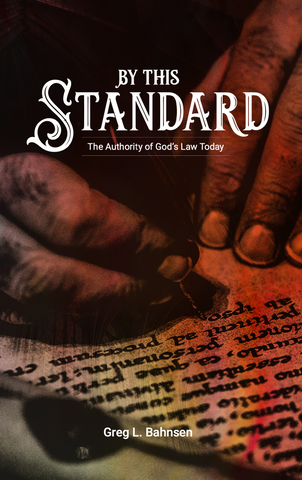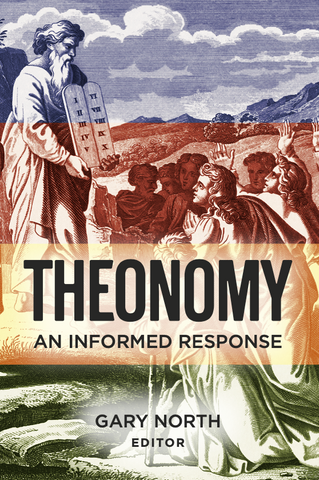Matthew 7:1 (“Judge not…”) is the favorite NT verse of atheists and always taken out of its immediate context (see vv. 2-5 and John 7:24). Cherry picked passages from the Old Testament come in a close second. Chip Gaines judged Christians for judging their show’s normalization of homosexuality and homosexual marriage and adoption. Their show’s episode should have gotten as much attention as the Coldplay kiss-cam video that went viral and the Astronomer CEO Andy Byron who resigned after all the attention it got.
A few years ago, homosexual Don Lemon interviewed Matt Bevin, a Kentucky Republican gubernatorial candidate, and asked him some questions related to the Bible. Lemon, instead of studying the Bible for himself, played a clip from the TV show West Wing where Martin Sheen’s character shows his ignorance of the Bible:
My chief of staff, Leo McGarry, insists on working on the Sabbath. Exodus 35:2 clearly says he should be put to death. Am I morally obligated to kill him myself or is it okay to call the police? Here’s one that’s really important cause we’ve got a lot of sports fans in this town: touching the skin of a dead pig makes one unclean. If they promise to wear gloves can the Washington Redskins still play football? Can Notre Dame? Can West Point? Does the whole town really have to be together to stone my brother, John, for planting different crops side by side? Can I burn my mother in a small family gathering for wearing garments made from two different threads? Think about those questions, would you?
If Don Lemon was a good journalist, he would have looked at the Bible and studied some theology to see what they said on these topics.
These types of arguments have been answered repeatedly over the centuries. All journalists should be familiar with the hermeneutical history regarding the relationship between these laws (e.g., eating shellfish, beards, mixing fabrics, being unequally yoked: 2 Cor. 6:14, etc.) and the New Covenant if they are going to discuss the topic. For example, Jesus declared all foods clean (Mark 7:19; also see Acts 10; 1 Tim. 4:3).

By This Standard
God's Law is Christianity's tool of dominion. This is where any discussion of God's law ultimately arrives: the issue of dominion. Ask yourself: Who is to rule on earth, Christ or Satan? Whose followers have the ethically acceptable tool of dominion, Christ's or Satan's? What is this tool of dominion, the Biblically revealed law of God, or the law of self-proclaimed autonomous man? Whose word is sovereign, God's or man's?
Buy NowYou’ll hear people say, “Jesus didn’t say anything about homosexuality.” Jesus didn’t say anything about tripping blind people, rape, or having sex with animals. He didn’t have to. These and other laws were part of a moral category that carried over into the NT. There are examples like these found in the epistles of Paul (e.g., 1 Cor. 5:1-2; 1 Cor. 6; 1 Tim. 1).
The book of Hebrews shows clearly that laws related to the priesthood, sacrificial system, temple ordinances, etc. were fulfilled in the person and work of Jesus Christ. He is the embodiment of the temple (John 2:19-21), the high priest (Heb. 4:14-5:10; 7:1-28), and ultimate sacrifice (John 1:29).
Laws regarding mixed fabrics and animals being “unequally yoked” are easily understood in terms of New Testament theology (2 Cor. 6:14). Again, there are basic commentaries that cover these issues that have been around for centuries.
The death penalty for Sabbath breaking is difficult to understand if you aren’t familiar with biblical theology. For two studies of the subject, see Dr. Gary North’s article “The Economic Implications of the Sabbath” in his book The Sinai Strategy: Economics and the Ten Commandments and the 100-page Sabbath Breaking and the Death Penalty: A Theological Investigation by James B. Jordan. The New Testament raises the Sabbath question that seems to indicate that not all labor was prohibited on the Sabbath.
And it happened that [Jesus] was passing through the grainfields on the Sabbath, and His disciples began to make their way along while picking the heads of grain. The Pharisees were saying to Him, “Look, why are they doing what is not lawful on the Sabbath?” Jesus said to them, “The Sabbath was made for man, and not man for the Sabbath.” (Mark 2:23-27).
Jesus does not indicate that He was changing the law regarding the Sabbath. Jordan comments: “Why was wood-gathering a form of special sabbath work? People went out and gathered manna on the sabbath, in disobedience to the Lord (Ex. 16:5), but they were not put to death for it (Ex. 16:27-30). What is different about wood?”[1]
Before a journalist deals with a religious topic, he or she should at least know the arguments for a position. Unlike the subject of homosexuality which is condemned in the Old (Lev. 18:22; 20:13) and New Testaments (Rom. 1:25-32; 1 Cor. 6: 9-20; 1 Tim. 1:8-11), the New Testament indicates that some changes have been made to Sabbath observation (Gal. 4:10-11; Col. 2:16) and some corrections by example (Matt. 12:1-2, 5, 8, 10-12). The incident of Paul picking up “a bundle of sticks” (Acts 28:3-6) on the Sabbath (27:33) seems to indicate that the death penalty for some very particular action no longer applies under the New Covenant. The key New Testament verse is Colossians 2:16-17:
Therefore no one is to act as your judge in regard to food or drink or in respect to a festival or a new moon or a Sabbath day—things which are a mere shadow of what is to come; but the substance belongs to Christ.
In addition to Sabbath observance, food and drink are also mentioned, an important point when we get to the topic of “pig skins” below. Dr. North writes on the Sabbath topic:
Paul was not speaking of ceremonial sabbaths, but the Mosaic sabbath. It is gone forever. The fact that the church celebrates a new day [the first day of the week] should testify to this theological fact.… In the case of the Mosaic sabbath, Paul provides us with full justification of just this sort of abandonment. We no longer enforce the Mosaic provisions, because the Mosaic sabbath ended at Calvary. We have a new day of rest, and we dare not arbitrarily select some of the Old Testament sabbath definitions, restraints, and legal sanctions without taking them all. We have no exegetical grounds for taking them all, since the very change in the day of celebration, not to mention Paul’s explicit teaching regarding the locus of responsibility for enforcement (the conscience), testifies to the break with the past.[2]
Now on to “pig skins” and football. A person who touched an unclean animal would only be declared “unclean” for a short period of time. There were no civil sanctions for touching or eating unclean or dead animals (Lev. 5:2-3; 7:19, 21; 11:8, 24, 26-27, 36, 39; 15:27; Num. 19:11, 13, 16; Deut. 14:8; Isa. 52:11). There may a NT clue that these OT regulations have also passed away when we find Peter “in Joppa with a certain tanner, Simon” (Acts 9:43). A tanner is someone who worked with dead animal skins.
Actually, footballs are not made from pig skin as a quick Google search would show. Even the folks at the Dollar Shave Club know this:
“Though early balls were fashioned from pig bladders, the ol’ pigskin was never actually made from pig skin. Today’s footballs don’t consist of pig parts of any kind, having been made from tanned and pebbled cowhide since the late 1800s.”[3]
It’s not hard to be informed today. In fact, a person must try hard not to be informed.
Let’s suppose that footballs are made from pigskin leather. Anyone who touched it would have been considered ceremonially unclean “until evening.”

Theonomy: An Informed Response
Christendom is a civilization—the kingdom of God in history—that is governed in every area, every nook and cranny, by God: a society whose lawfully anointed rulers govern in terms of God’s revealed law. In this view, God is not in retirement or on vacation; He is a King who has delegated to His officers the authority to exercise command. There are three covenantal institutions: family, church, and state. To deny that God’s covenant law applies to civil government in New Testament times is necessarily to abandon the ideal of Christendom.
Buy NowThese food laws went through a change beginning with the ministry of Jesus since He declared all foods to be “clean” (Mark 7:19). Peter, a Jew, is told to “take, kill, and eat” (Acts 10:13) unclean animals which represented the nations which were to be grafted into a growing New Testament ekklēsia (Acts 5:11; 8:1-2; 9:31; Rom. 11; Eph. 2:11-22).
The last bit of biblical nonsense concerns wearing two types of cloths and planting two different crops in the same field. While these were forbidden for teaching purposes, the punishment was not stoning (Lev. 19:19; Deut. 22:9, 11). The principles that these ceremonial laws teach, however, were carried over into the New Testament as object lessons:
“Do not be bound together with unbelievers; for what partnership have righteousness and lawlessness, or what fellowship has light with darkness? Or what harmony has Christ with Belial, or what has a believer in common with an unbeliever? Or what agreement has the temple of God with idols? For we are the temple of the living God; just as God said, ‘I WILL DWELL IN THEM AND WALK AMONG THEM; AND I WILL BE THEIR GOD, AND THEY SHALL BE MY PEOPLE. Therefore, COME OUT FROM THEIR MIDST AND BE SEPARATE,’ says the Lord. ‘AND DO NOT TOUCH WHAT IS UNCLEAN; and I will welcome you. And I will be a father to you, and you shall be sons and daughters to Me,’ Says the Lord Almighty” (2 Cor. 6:14-18).
Any good journalist would have studied this topic instead of using the script of a TV show as his or her source.
[1] [We have noted, in chapter 4, that God’s fire was unique, ignited by Him, and carried by men from place to place. An example of this is Abraham’s journey to sacrifice Isaac, recorded in Genesis 22. Curiously, Abraham took not only fire but also wood with him on his three-day journey. J. B. Shearer comments, “But why carry wood so far? The Magians prepared the wood for their altars with great care and stored it away for use when needed and they considered it holy. It seems as if this was Abraham’s custom long ages before.” J. B. Shearer, One Hundred Brief Bible Studies (Richmond: Presbyterian Committee of Publication, 1912), p. 13l. Interesting as this suggestion is, I can find no corroboration of it anywhere in Scripture. There is no indication that God required the priests of Israel to take any especial care with the wood used on the altar. Thus, in my opinion it remains something of a mystery why Abraham would choose to carry the wood for three days, rather than gather some on Mount Moriah. The answer to this question, however, might conceivably lend additional depth to our consideration of the death of the woodgatherer. There might be a conceptual parallel in ancient thought between the gathering of wood for sacrifice and the gathering of wood for domestic use, along the lines of the two hearths. That is, wood is brought to God’s altar on the sabbath, and not to man’s.]
[2] North, The Sinai Strategy, 319-320.
[3] “(Pig)Skin in the Game,” The Bathroom Minutes (September 2015), No. 20, 4.

